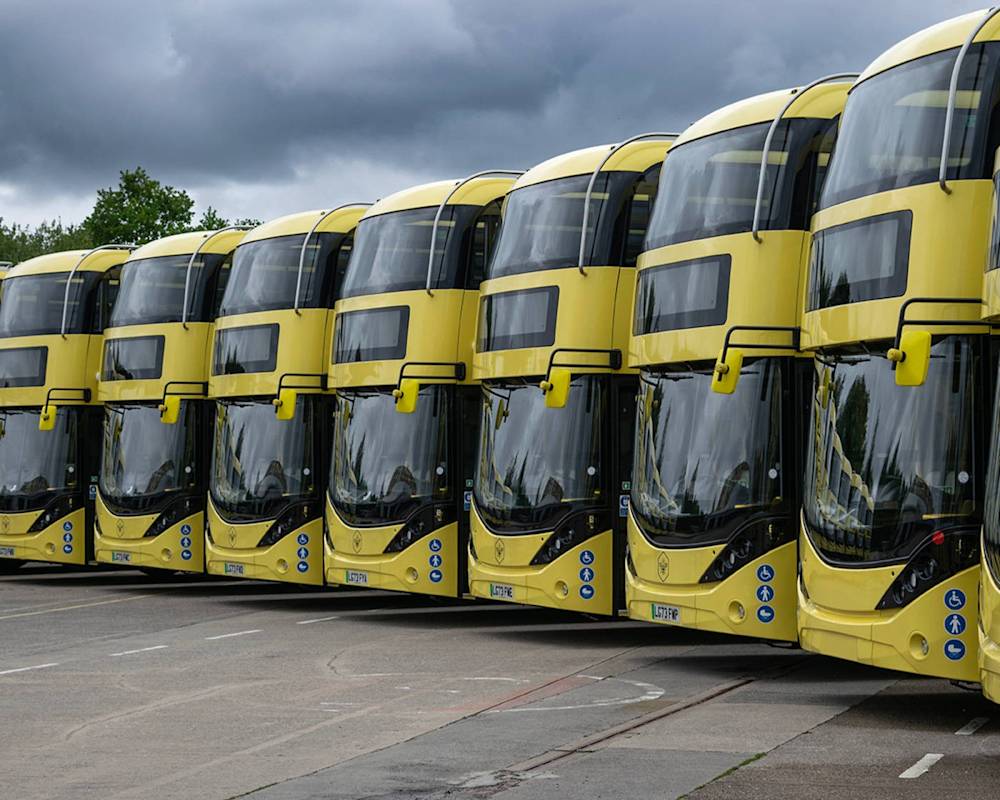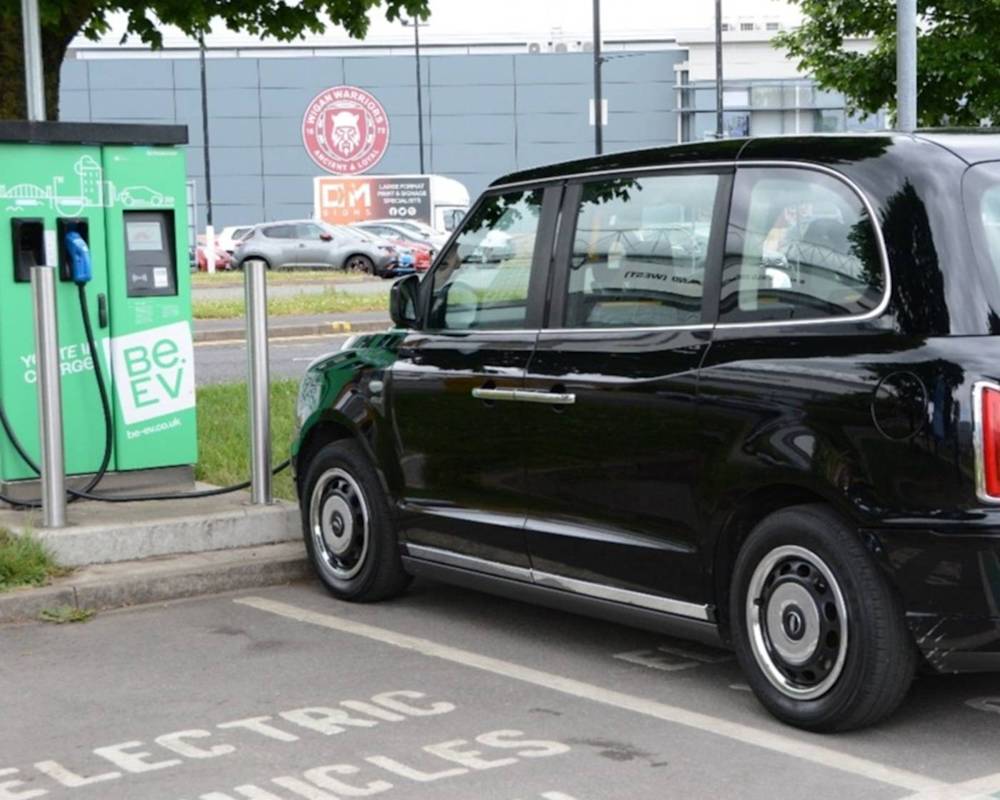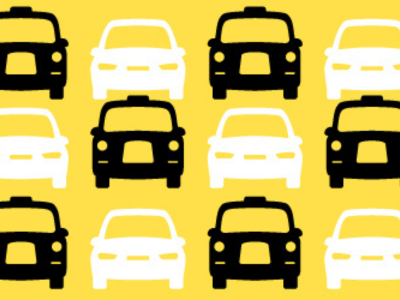Cleaning up our air
Like many areas across the country, Greater Manchester has high levels of air pollution on some local roads.
Poor air quality affects everyone’s health and is linked to many health conditions.
We’re working to make Greater Manchester a cleaner and healthier place to live in, work in and visit.
Through the transformational Bee Network we’re already cleaning up our air through investment in cleaner buses and active travel.
The investment-led Greater Manchester Clean Air Plan will further reduce air pollution on local roads through a multi-million-pound investment in cleaner buses, taxis and targeted traffic measures.
Government has approved the investment-led Clean Air Plan with no Clean Air Zone and no charges to drive on local roads.

The investment-led Clean Air Plan
Greater Manchester is under direction from government to meet legal limits for nitrogen dioxide on local roads in the shortest possible time and by 2026 at the latest.
Government has approved the investment-led Greater Manchester Clean Air Plan as the best route to cutting this pollution.
More than £19 million government Clean Air Plan funding has already been committed to vehicle upgrades, largely for buses and HGVs, with a small number of LGV, taxi and private hire upgrades.
Now, further funding is helping to clean up our air:
£51.1 million Clean Bus Fund: To fund cleaner buses on routes where they are most needed to bring nitrogen dioxide within legal limits.
£8 million Hackney Support Fund: To support moving Greater Manchester’s hackney (black cab) fleet to cleaner vehicles.
£3 million local measures: To manage traffic flows in Manchester and Salford and bring nitrogen dioxide within legal limits on Regent Road and Quay Street.
Through these measures the approved Clean Air Plan will allow the city region to meet legal limits for nitrogen dioxide on local roads in the shortest possible time, without the need for a Clean Air Zone.
Next steps
Greater Manchester is now:
Continuing to roll out cleaner buses and depot electrification.
Continuing work with Manchester and Salford City Councils to develop the traffic measure schemes, including local engagement.
Considering public consultation feedback on Greater Manchester Police taking ownership of Clean Air Zone Automatic Number Plate Recognition (ANPR) cameras to help tackle crime. Find out more about the consultation on ANPR cameras.
Check back for updates or sign up to our newsletter.
Improving our air through the Bee Network
Greater Manchester is working to create the UK’s first fully joined up, zero-emission public transport network by 2030: the Bee Network.
Since taking back control of local buses through the Bee Network, we have been able to run clean and zero-emission buses on routes where they are most needed to improve air quality.
1 in 5 buses are now electric, compared to 2% of buses before we took local control through the Bee Network.
Rapid progress is being made to electrify bus depots. Ashton has the first all-electric depot, while Bolton, Oldham and Hyde Road (Manchester) depots have all been upgraded, and further upgrades are underway at Middleton depot.
Millions more sustainable journeys are being made on affordable, safe, greener and more reliable services.
Alongside Clean Air Plan funding, in June 2025 Greater Manchester was awarded £2.5 billion government transport funding, including a thousand new electric buses.
Air quality monitoring data shows that investment in bus services is helping to improve local air quality. Air pollution improved in 2024 compared with the previous year and is significantly lower than pre-pandemic levels.

Upgrading Greater Manchester's taxi fleet
Government has allocated £8 million funding to support Greater Manchester’s hackney (black cab) trade to move to cleaner vehicles, linked to local emissions standards.
GMCA will consider establishing a fund to assist private hire vehicle owners in upgrading their vehicles to meet emission standards during the 2026/27 budget setting process. If included in the 2026/27 budget plans, loans could be available by the end of May 2026.
Greater Manchester authorities have extended the emissions standards for taxis to 31 December 2026 to give all drivers time to upgrade. Exemptions are available until the authority's maximum vehicle age limit, or until 31 August 2030 if no age policy exists, giving the taxi trade extra time to comply.

Hackney Support Fund
Following engagement with the black cab trade on how best to allocate the £8 million government funding, it has been agreed that grants of up to £12,560 will be available for eligible vehicle licensees:
Upgrading to a compliant Wheelchair Accessible Vehicle:
£12,560 for a new or second-hand ZEC Wheelchair Accessible Vehicle
£6,280 for a compliant Wheelchair Accessible Vehicle (minimum Euro 4 petrol or Euro 6 diesel)
Upgrading to a compliant non-Wheelchair Accessible Vehicle:
£7,530 for a new or second-hand ZEC vehicle
£6,280 for a compliant 6+ seater vehicle (minimum Euro 4 petrol or Euro 6 diesel)
£3,770 for a compliant vehicle (minimum Euro 4 petrol or Euro 6 diesel)
For more information, visit the Hackney Support Fund webpage.
Backing our taxis: Local. Licensed. Trusted.
In April 2025, Greater Manchester leaders launched the ‘Backing our taxis: Local. Licensed. Trusted’ campaign – calling on government to support the city region’s taxis and tackle the problem of ‘out of area’ licensing.
As part of this, a review of taxi licensing in Greater Manchester found that the national system needs reforms to benefit the taxi trade, local authorities, and the travelling public.
Over 5,200 licensees, trade bodies, and local authority officers engaged with the review, which found that there is a strong appetite for positive change.
Read the report outlining feedback from the taxi trade and recommendations.

Your questions answered
The Greater Manchester Clean Air Plan is underpinned by local data, air quality modelling (the process of forecasting, understanding and managing future levels of air pollution).
We’ve worked closely with the government’s Joint Air Quality Unit to help guide us in developing measures that would meet legal limits for nitrogen dioxide on local roads by 2026 at the latest. Work to develop the investment-led Clean Air Plan has also been underpinned by targeted engagement and research with key impacted groups.
The evidence clearly demonstrated that only the investment-led Clean Air Plan would meet the government’s legal deadline.
Government approved the investment-led Clean Air Plan on 23 January 2025, meaning that there will be no Clean Air Zone and charge for any vehicles to drive anywhere in Greater Manchester.
Greater Manchester’s original proposed Clean Air Plan included plans for a GM-wide category C charging Clean Air Zone, under legal direction from government.
However, following the COVID-19 pandemic, the original Clean Air Plan was no longer the right solution - posing significant financial threats for local people, businesses and jobs.
It would no longer have met the government’s legal direction (issued before the pandemic) to tackle harmful nitrogen dioxide on local roads by 2024.
Greater Manchester was placed under a new legal direction to meet legal limits for nitrogen dioxide on local roads “in the shortest possible time” and by 2026 at the latest.
In developing the new investment-led Clean Air Plan we compared our investment-led proposals against a ‘benchmark’ Clean Air Zone in the regional centre (the centre of Manchester and bordering areas of Salford). Our work showed that:
Only the investment-led, non-charging plan would meet the government direction to meet legal limits for nitrogen dioxide by 2026.
The alternative ‘benchmark’ charging Clean Air Zone (in the centre of Manchester and bordering parts of Salford) would not meet legal limits for nitrogen dioxide in 2026, failing to meet the government’s compliance date of 2026.
Clean Air Zone signage and Automatic Number Plate Recognition (ANPR) cameras were installed for the formerly planned Clean Air Zone and fully funded by government.
Government has confirmed there will be no charging-Clean Air Zone and Greater Manchester’s local authorities are National Highways are now removing the signs, with funding from the government’s Joint Air Quality Unit.
Data from the ANPR cameras has helped to develop the investment-led Clean Air Plan. The cameras will continue to be used to monitor the efficiency of the plan until GM meets legal limits for nitrogen dioxide on local roads (as soon as possible and by 2026 at the latest).
A six-week consultation took place from 26 September to 6 November 2025 to seek views on Greater Manchester Police taking ownership of Clean Air Zone Automatic Number Plate Recognition (ANPR) cameras to help tackle crime. All consultation feedback is now being considered. Find out more about the ANPR consultation.
The investment-led Clean Air Plan includes £3m for local traffic measures to manage traffic flow on roads in Manchester and Salford and bring nitrogen dioxide within legal limits on Regent Road and Quay Street. Measures include:
Signal timing adjustments at A57 Regent Road and adjacent parallel routes to improve the flow of traffic, reduce congestion and emissions.
Speed restrictions on A57 Regent Road to improve the flow of traffic, reducing emissions from drivers speeding up and slowing down.
Yellow box enforcement along the A57 Regent Road corridor.
Yellow box enforcement on A34 Quay Street.
However, we are seeking adjustments to some elements of the scheme. Practical challenges installing speed cameras will take longer than originally planned, and the traffic management measures in the St John’s area are also no longer needed based on the latest air quality modelling and monitoring data.
Greater Manchester will continue working with Manchester and Salford City Councils to develop these schemes, including local engagement.
Work to develop the investment-led Clean Air Plan has already included targeted engagement and research with key impacted groups. This included working with vehicle-owning groups (like the taxi trade) and representatives of other impacted individuals, such as community and equality-based groups.
The requirement for statutory consultation on the previous GM Clean Air Plan was related to the use of Transport Act 2000 powers for road user charging. As government has NOT directed that a Clean Air Zone is required as part of the GM Clean Air Plan, and the investment-led GM Clean Air Plan does not involve a Clean Air Zone, it does not require statutory consultation.
We are continuing to work with the taxi trade as we roll out clean hackney taxi funding and consider how best to support private hire vehicle upgrades to a cleaner taxi fleet. We will also engage in line with good local authority practice to inform the ongoing equality impact analysis.
The latest air quality monitoring data for 2024 shows that air pollution had fallen compared to 2023 and is significantly lower than levels recorded pre-pandemic in 2019.
In 2019, air quality monitoring data showed 129 locations of nitrogen dioxide exceedance. This has now fallen to 38 sites across the city region, down from 64 in 2023.
This gradual improvement in air quality is in part driven by investment in the Bee Network, as well as people upgrading to cleaner vehicles, and through existing Clean Air Plan investments in cleaner vehicles.
You can see all Greater Manchester’s air quality monitoring data on the Clean Air GM Data Hub.
What can I do to help reduce air pollution?
Are you contributing to air pollution? There are plenty of ways we can all help reduce air pollution. The single biggest thing we can all do is drive less, where possible.
See our suggestions for more simple changes you can make to reduce and avoid air pollution.
Changes you can make
Sign up for updates
Keep up to date with the latest Clean Air Plan news.
Transport for Greater Manchester (TfGM) is the Data Controller of personal information provided in this form.


